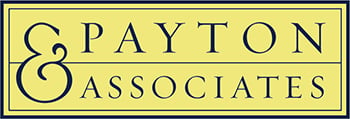Last time, our blog started providing some background information on a particular type of investment fraud that seems to be occurring on a more regular basis here in the U.S. and around the world.
The investment fraud in question is a Ponzi scheme, which, as we discussed, involves a perpetrator promising high returns on investments and paying these returns, not with actual profits, but rather with funds secured from new investors. This, in turn, creates the impression that the otherwise fictional investment opportunities are actually generating high returns.
While it goes without saying that prospective investors want to do everything in their power to protect the loss of hard-earned money in a Ponzi scheme, the fact remains that they can be difficult to detect if you don’t know what to look for.
Fortunately, the Securities and Exchange Commission has identified a few warning signs that can serve to alert investors to a potential Ponzi scheme:
- Investments have not been registered with either state officials or the SEC, which is significant as registration gives investors much-needed information concerning the management, services and finances of a given company.
- Investment professionals overseeing the matter — either an individual or a firm — are not licensed or registered in accordance with state and federal law.
- Returns are consistently high despite prevailing market conditions and the investor supposedly taking on very little risk.
- Attempts to cash out investments are difficult or met with an urging to roll the money over to another investment with supposedly higher returns.
- Paperwork relating to the investment is incomplete, inconsistent or nonexistent.
In light of these warning signs, the SEC advises potential investors to take the time to find the answers to these questions before handing over their money:
- Have the investments been registered with either state officials and/or the SEC?
- Does the investment promise a high return and very little risk?
- Does the investment professional have the necessary licensure?
- Are the details of the investment strategy clear?
- Have all my concerns been addressed?
We’ll conclude this discussion by examining how Ponzi schemes compare and contrast with pyramid schemes, another prevalent form of investment fraud.
In the meantime, if you are an aggrieved investor with questions about preserving assets via federal court receiverships or via state court receiverships, consider speaking with a skilled legal professional as soon as possible.

